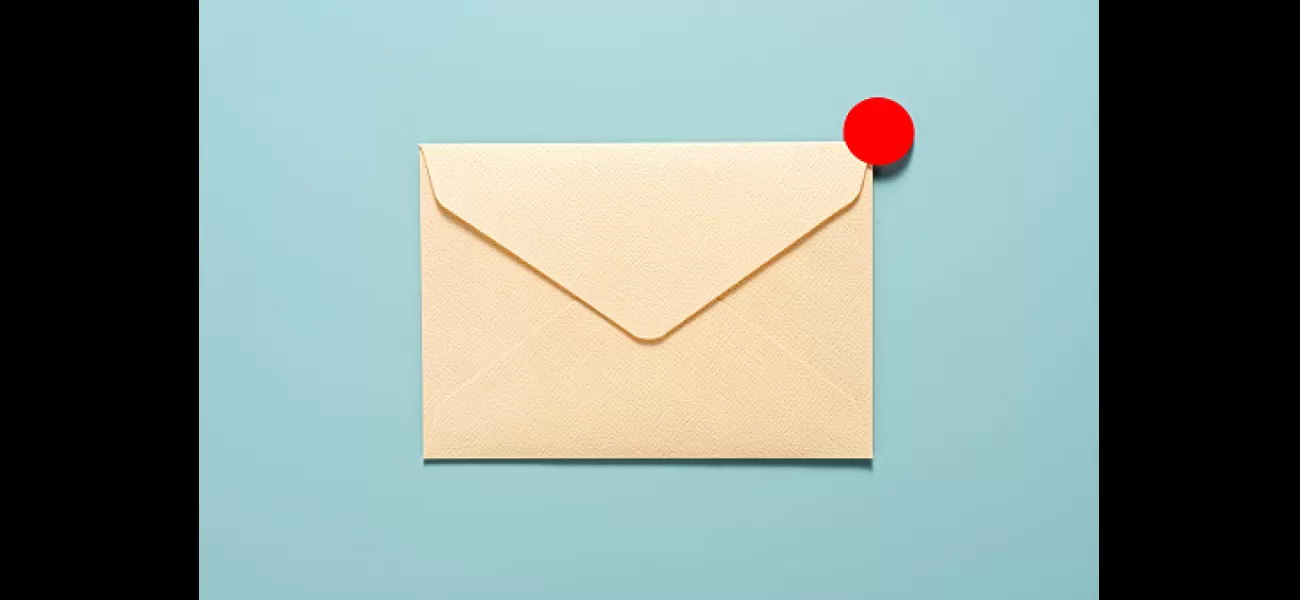50K unread emails expose personality traits.
Are you someone who keeps their inbox empty or do you have over 50,000 emails?
June 16th 2024.

How many work emails do you currently have piling up in your inbox, waiting for your attention? Surprisingly, a recent study revealed that one in every hundred Brits have an astonishing 50,000 or more unread work emails. Yes, you read that right. Fifty thousand emails. The mere thought of this may send shivers down your spine, and you're definitely not alone in feeling that way.
But let's take a step back. Among those with an overwhelming number of unopened emails, there are also 5% of UK office workers with more than 5,000 unread emails and 13% with more than 1,000. Some may wonder, does this mean these individuals have a psychopathic tendency or are they just risk-takers? Or perhaps, there are simply too many emails flooding our inboxes nowadays.
Dr. Talar Moukhtarian, an assistant professor in mental health at the University of Warwick, cautions against judging those with a seemingly uncontrollable number of emails or assuming that those with an "Inbox Zero" are superior individuals. The way we handle our work emails can give insight into our personality, such as our stress tolerance and willingness to be spontaneous. However, it's important to keep in mind that this is not a definitive indicator of our personality traits.
According to Dr. Moukhtarian, our email management style can also reveal our organizational skills, stress tolerance, attention to detail, and communication style. For instance, someone with thousands of unread emails may have a higher tolerance for chaos and spontaneity, while those with an empty inbox may prioritize organization and prompt task completion.
However, it's important to note that not everyone with a bulging inbox can handle chaos, and not everyone who is organized is immune to losing control of their email situation. Some individuals receive hundreds of emails daily and simply do not have the time to address both their emails and their actual job responsibilities.
Last year, a Financial Times journalist shared that she had over 400,000 unread emails, while a colleague had 500,000. She described how the constant influx of emails has become more of a hindrance than a helpful tool. The study, commissioned by Babbel to celebrate Gmail's 20th anniversary, also found that 65% of respondents believe the volume of emails they receive at work contributes to their stress levels. And to top it off, 43% hope that in five years' time, they'll receive fewer emails. A girl can dream, right?
Dr. Moukhtarian emphasizes the potential negative impact of email overload on our mental health and suggests taking proactive steps to manage our inbox clutter effectively. There are various methods out there, from filtering messages to mass unsubscribes, but the jury is still out on which ones actually work.
One crucial step to consider is whether or not to engage with work emails outside of office hours. Some people find it helpful to stay on top of the never-ending email pile, but for others, it blurs the line between work and personal life, leading to burnout and decreased well-being. It's all about finding a balance between productivity and relaxation, setting clear boundaries, prioritizing self-care, and communicating expectations with colleagues and managers regarding our availability outside of regular work hours.
So, next time you see a coworker with a massive backlog of emails, don't be so quick to judge. And for those of you with an overflowing inbox, take comfort in the fact that you are not alone, and remember to prioritize your well-being above everything else. After all, a healthy work-life balance is essential for our overall happiness and productivity.
But let's take a step back. Among those with an overwhelming number of unopened emails, there are also 5% of UK office workers with more than 5,000 unread emails and 13% with more than 1,000. Some may wonder, does this mean these individuals have a psychopathic tendency or are they just risk-takers? Or perhaps, there are simply too many emails flooding our inboxes nowadays.
Dr. Talar Moukhtarian, an assistant professor in mental health at the University of Warwick, cautions against judging those with a seemingly uncontrollable number of emails or assuming that those with an "Inbox Zero" are superior individuals. The way we handle our work emails can give insight into our personality, such as our stress tolerance and willingness to be spontaneous. However, it's important to keep in mind that this is not a definitive indicator of our personality traits.
According to Dr. Moukhtarian, our email management style can also reveal our organizational skills, stress tolerance, attention to detail, and communication style. For instance, someone with thousands of unread emails may have a higher tolerance for chaos and spontaneity, while those with an empty inbox may prioritize organization and prompt task completion.
However, it's important to note that not everyone with a bulging inbox can handle chaos, and not everyone who is organized is immune to losing control of their email situation. Some individuals receive hundreds of emails daily and simply do not have the time to address both their emails and their actual job responsibilities.
Last year, a Financial Times journalist shared that she had over 400,000 unread emails, while a colleague had 500,000. She described how the constant influx of emails has become more of a hindrance than a helpful tool. The study, commissioned by Babbel to celebrate Gmail's 20th anniversary, also found that 65% of respondents believe the volume of emails they receive at work contributes to their stress levels. And to top it off, 43% hope that in five years' time, they'll receive fewer emails. A girl can dream, right?
Dr. Moukhtarian emphasizes the potential negative impact of email overload on our mental health and suggests taking proactive steps to manage our inbox clutter effectively. There are various methods out there, from filtering messages to mass unsubscribes, but the jury is still out on which ones actually work.
One crucial step to consider is whether or not to engage with work emails outside of office hours. Some people find it helpful to stay on top of the never-ending email pile, but for others, it blurs the line between work and personal life, leading to burnout and decreased well-being. It's all about finding a balance between productivity and relaxation, setting clear boundaries, prioritizing self-care, and communicating expectations with colleagues and managers regarding our availability outside of regular work hours.
So, next time you see a coworker with a massive backlog of emails, don't be so quick to judge. And for those of you with an overflowing inbox, take comfort in the fact that you are not alone, and remember to prioritize your well-being above everything else. After all, a healthy work-life balance is essential for our overall happiness and productivity.
[This article has been trending online recently and has been generated with AI. Your feed is customized.]
[Generative AI is experimental.]
0
0
Submit Comment





